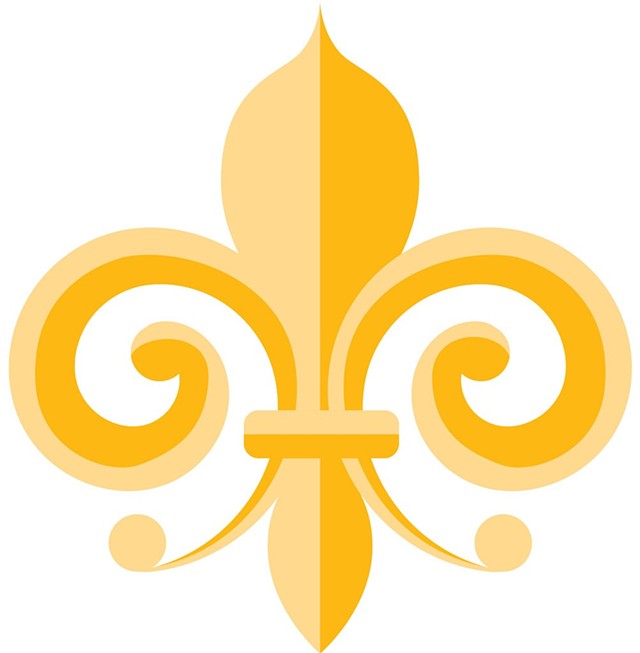
Last year, my oldest daughter, Dahlia, dared me to take her to Paris, suggesting we leave her three younger sisters behind. After years of resisting, she'd developed an interest in learning French, which surprised me.
It also got me thinking about my own conflicted feelings toward the French language.
I was born and raised in Montréal and, although my mother likes to call me a Québécoise, no French-Canadian ever would. My parents were immigrants to Canada — my father from South Africa, my mother from India (by way of Australia) — who didn't speak French. They settled on the West Island of Montréal, where mostly Anglophones lived. I spoke only English until fourth grade, when my parents put me into a French immersion program, which I attended through high school. I learned math and economics in French; I even began dreaming in French. My diaries from those high school years are littered with French phrases and slang, a jumble of sentences in two languages.
In eleventh grade, I remember listening to my teacher and thinking, Is he speaking in French or English? I had become so immersed in both languages that my brain didn't need to translate from French to English anymore. I could absorb my second language like it was my first — and I loved it.
But there were also complications. When I was coming of age in the '80s and '90s, the province of Québec was waging a war against the English language. The Québec separatist movement started gaining momentum in the early 1970s. In 1977, when I was 4 years old, the National Assembly passed Bill 101, defining French as the official language of Québec.
The law slowly transformed the multicultural, immigrant-filled city. Street signs in Montréal were changed — St. Lawrence Street became Rue St. Laurent. Commercial signs had to be in French, or at the very least the French sign had to be bigger than the English one or the business owner would be fined. If you called a library, even an English-language one, or a store with an English-speaking owner, they were obliged to say "Bonjour, Hello" — always the French greeting first. Houses went up for sale all over our neighborhood, as thousands of Anglophones left Montréal.
As one of those who stayed, I felt judged. Once, when walking around speaking English with my friends, I heard rude comments like "En francais!" or "In French!" from people I can only assume were separatists. Often Montréalers were reluctant to respond to me when I spoke English.
But when I spoke French, no matter how well I knew the language, people treated me differently because my accent and culture revealed I wasn't Québécoise. I felt like a second-class citizen because I was not pure laine — someone whose ancestry is exclusively French-Canadian.
Still, speaking French was part of my identity; when I had children I wanted to introduce them to the language. When Dahlia was little and we lived in Brooklyn, I would schlep her into Manhattan every week for a baby French class. When she was 3 and 4, I attempted to speak to her in French. She hated it and screamed "Stop! Stop!" every time a French word left my lips. When we went to Montréal, I would speak French in stores and restaurants. I tried to teach her what I was saying and asked her to repeat after me. She refused. Eventually, I gave up. Perhaps, I thought, the French language is not mine to teach.
I'm forever thankful that my kids don't have the kind of fraught relationship with another language and culture that I did, but I do wish they'd learn another language. Studies have shown that learning more than one language enhances the brain's ability to solve problems and think creatively. So when my two older daughters started elementary school in Burlington, I was happy that they took a basic Spanish class a couple of times a week. When budget cuts put an end to that foreign-language instruction until eighth grade, I was disappointed.
Dahlia's sudden interest in visiting Paris with me seemed like the perfect educational opportunity. So last month, I rose to her challenge: The two of us traveled to Paris to celebrate her 12th birthday.
As soon as we got into the taxi from Charles de Gaulle airport, I began speaking French to the driver. I asked him questions about Paris, conversed about politics and empathized about the bad rush-hour traffic. I felt no judgment about my ancestry from him.
Dahlia, not understanding a word, beamed. Instead of being annoyed, she seemed interested at last. In turn, I felt grateful for her. She'd helped me remember how much I love — and could embrace — French. And that, perhaps, I could even try teaching it to her again someday.











Comments
Comments are closed.
From 2014-2020, Seven Days allowed readers to comment on all stories posted on our website. While we've appreciated the suggestions and insights, right now Seven Days is prioritizing our core mission — producing high-quality, responsible local journalism — over moderating online debates between readers.
To criticize, correct or praise our reporting, please send us a letter to the editor or send us a tip. We’ll check it out and report the results.
Online comments may return when we have better tech tools for managing them. Thanks for reading.